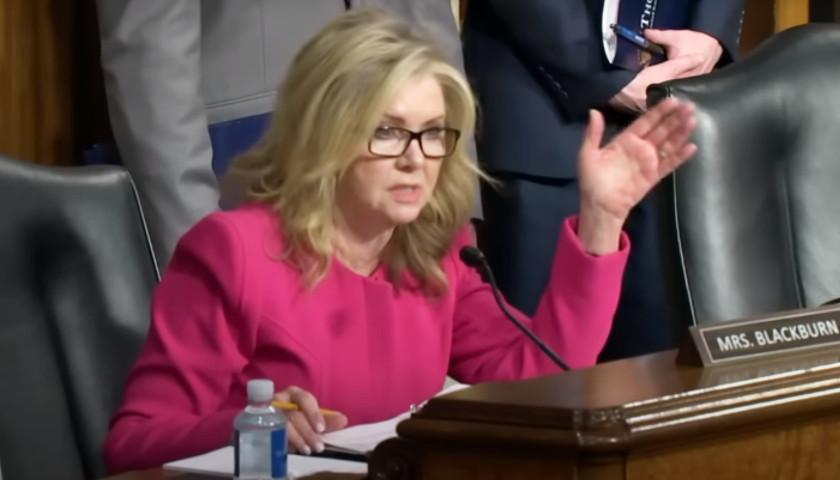The Georgia Freedom Caucus blasted the Biden administration’s unfair new mortgage policy in a May 9 letter to State Treasurer Steve McCoy, whom they urged to publicly oppose the change that penalizes Georgians with good credit.
This policy is unfair to the hundreds of thousands of Georgians who have diligently managed their finances in anticipation of buying homes, only to be required to pay a “good credit” penalty to subsidize riskier borrowers. It is a significant imposition on Georgians at a time when inflation, rising interest rates, and uncertain economic prospects due to federal mismanagement of the economy have already slowed the sales of homes in Georgia over the past year.
Furthermore, this FHFA policy was done without a formal rulemaking process that should have given state financial officers like you an opportunity to explain to the agencies the harm this policy will cause.
A coalition of 27 states wrote that “the policy will take money away from the people who played by the rules and did things right – including millions of hardworking, middle-class Americans who built a good credit score and saved enough to make a strong down payment. Incredibly, those who make down payments of 20 percent or more on their homes will pay the highest fees – one of the most backward incentives imaginable.”
Despite broad criticism since the rule’s introduction, the new changes became effective on May 1.
Officials at the Federal Housing Finance Agency (FHFA) insist the rule change will increase affordability of homes to buyers with lower credit scores. Critics say the rule change does so at the expense of those buyers with higher credit scores and the ability to apply a down payment as a part of the loan package.
“These changes to upfront fees will strengthen the safety and soundness of the Enterprises by enhancing their ability to improve their capital position over time,” FHFA Director Sandra L. Thompson said in a statement announcing the change in January.
David H. Stevens, an outspoken former Federal Housing Administration commissioner with the Obama administration said, “This confusing approach won’t work and more importantly couldn’t come at a worse time for an industry struggling to get back on its feet after these past 12 months. To do this at the onset of the spring market is almost offensive to the market, consumers, and lenders.”
FHFA Director Thompson, in an effort to quell blowback from elected officials, real estate and finance professionals, and free-market interest groups, in a late-April statement, characterizing the results of the changes as a misunderstanding of the policy.
“Unfortunately, much of what has been reported advances a fundamental misunderstanding about the fees charged by the Enterprises, and why they were updated,” Thompson said.
The FHFA chief listed six tersely-worded bullet points she said would “address some of these misconceptions directly:”
- Higher-credit-score borrowers are not being charged more so that lower-credit-score borrowers can pay less. The updated fees, as was true of the prior fees, generally increase as credit scores decrease for any given level of down payment.
- Some updated fees are higher and some are lower, in differing amounts. They do not represent pure decreases for high-risk borrowers or pure increases for low-risk borrowers. Many borrowers with high credit scores or large down payments will see their fees decrease or remain flat.
- Some mistakenly assume that the prior pricing framework was somehow perfectly calibrated to risk – despite many years passing since that framework was reviewed comprehensively. The fees associated with a borrower’s credit score and down payment will now be better aligned with the expected long-term financial performance of those mortgages relative to their risks.
- The new framework does not provide incentives for a borrower to make a lower down payment to benefit from lower fees. Borrowers making a down payment smaller than 20 percent of the home’s value typically pay mortgage insurance premiums, so these must be added to the fees charged by the Enterprises when considering a borrower’s total costs.
- The targeted eliminations of upfront fees for borrowers with lower incomes – not lower credit scores – primarily are supported by the higher fees on products such as second homes and cash-out refinances. The Enterprises’ statutory charters specifically include references to supporting low- and moderate-income families by earning returns on mortgages for these borrowers that may be less than the returns earned on other products. Indeed, Congress incorporated this into the Enterprises’ charters decades ago and it is a long-standing component of the Enterprises’ core business models.
- The changes to the pricing framework were not designed to stimulate mortgage demand. We publicly announced the objectives of the pricing review at its onset (as noted above), and stimulating demand was never a goal of our work.
Yahoo Finance summarized the effects of the changes:
Under the rule, homebuyers with a credit score of 680 or higher will reportedly have to pay about $40 per month more than people with worse credit when taking out a home loan of $400,000, according to NewsNation, which cited a report from The Washington Times.
The rule goes into effect on May 1, 2023 — just ahead of the peak spring buying season. It could impact mortgages from private banks across the nation based on loan-level price adjustments (LLPAs) established by Fannie Mae and Freddie Mac.
High-credit consumers with scores ranging from 680 to above 780 will see a spike in mortgage costs, The New York Post reported, with the biggest increases being felt by those who put 15% to 20% down on a home.
Joel Griffith, an economic expert at the Heritage Foundation, told The Center Square. “Rather than saddle those with scores 680 or lower with more debt, it’s far better to encourage them to re-establish credit.”
He added, “Most people find themselves financially strapped at some point. A few years of consistent timely payments and debt paydown can help someone even emerging from bankruptcy attain scores at 680 or worse with a near-zero percent loan from FHA.”
Read the Georgia Freedom Caucus letter:
– – –
Christina Botteri is the Executive Editor of The Star News Network.
Photo “House” by mschiffm.






People with poor credit are renters.